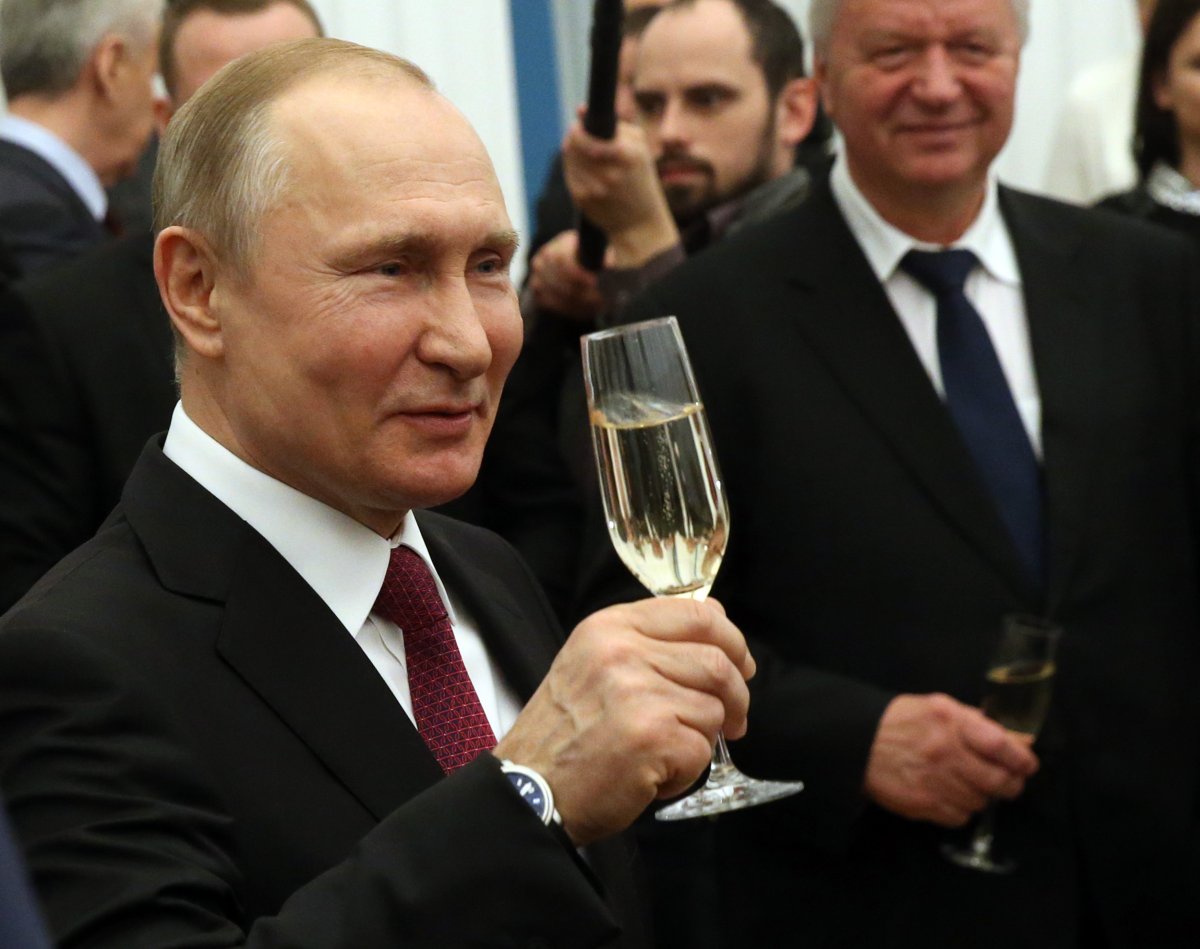Alcohol dependence in Russia has increased for the first time in a decade, according to data from Russia's state statistics service.
Russian newspaper Kommersant cited Rosstat's figures from its "Healthcare in Russia-2023" handbook, which was published in December. It showed that in 2022—the year Russia's full-scale invasion of Ukraine began—54,200 patients were diagnosed with alcohol dependence, of whom 12,900 were diagnosed with alcohol psychosis (a condition accompanied by hallucinations, delusions, mood swings, outbursts of violence or aggression and other symptoms).
Levels had been consistently dropping for a decade, between 2010 and 2021, from 153,900 to 53,300 people, but they are now back on the rise as of 2022, the statistics show.

Russia's health ministry previously said the COVID-19 pandemic disrupted the trend toward a decrease in alcohol consumption and mortality directly related to drinking. The ministry said that over the past 15 years, mortality from alcohol poisoning had decreased from 15 per 100,000 to seven per 100,000.
Experts interviewed by Kommersant attributed the recent increase in alcohol dependence in Russia to the COVID-19 pandemic, "socioeconomic shocks," and an "intensification of geopolitical confrontations."
Newsweek has contacted Russia's health ministry for comment by email.
In April 2023, the British Ministry of Defense said an "extremely high" number of Russian troops fighting in Ukraine were believed to be dying due to alcohol abuse.
The ministry made the assessment in an intelligence update on Russia's invasion of Ukraine, saying that "pervasive alcohol abuse" among Russian soldiers has been linked to an "extremely high" number of "incidents, crimes and deaths."
Russian commanders likely see the issue as "particularly detrimental" to the performance of Moscow's troops, the U.K. ministry added.
A "significant minority"of Russian casualties can be linked to non-combat causes, including alcohol, as well as other factors such as road accidents and hypothermia, the intelligence update said.
Alcoholism is also believed to be pervasive among Russian elites. Independent Russian news outlet Verstka reported in June 2023 that Russian officials, politicians and businesspeople were drinking more alcohol to deal with stress.
Politicians and "members of the elite" have become "more drunk" since the war in Ukraine began, the publication reported, citing people close to the Kremlin, parliament and regional authorities.
"Governors are slipping [missing] meetings and using illegal substances," one source said. "Meetings are being disrupted and people are getting drunk at events."
Do you have a tip on a world news story that Newsweek should be covering? Do you have a question about the Russia-Ukraine war? Let us know via worldnews@newsweek.com.
Uncommon Knowledge
Newsweek is committed to challenging conventional wisdom and finding connections in the search for common ground.
Newsweek is committed to challenging conventional wisdom and finding connections in the search for common ground.
About the writer
Isabel van Brugen is a Newsweek Reporter based in Kuala Lumpur. Her focus is reporting on the Russia-Ukraine war. Isabel ... Read more
To read how Newsweek uses AI as a newsroom tool, Click here.





